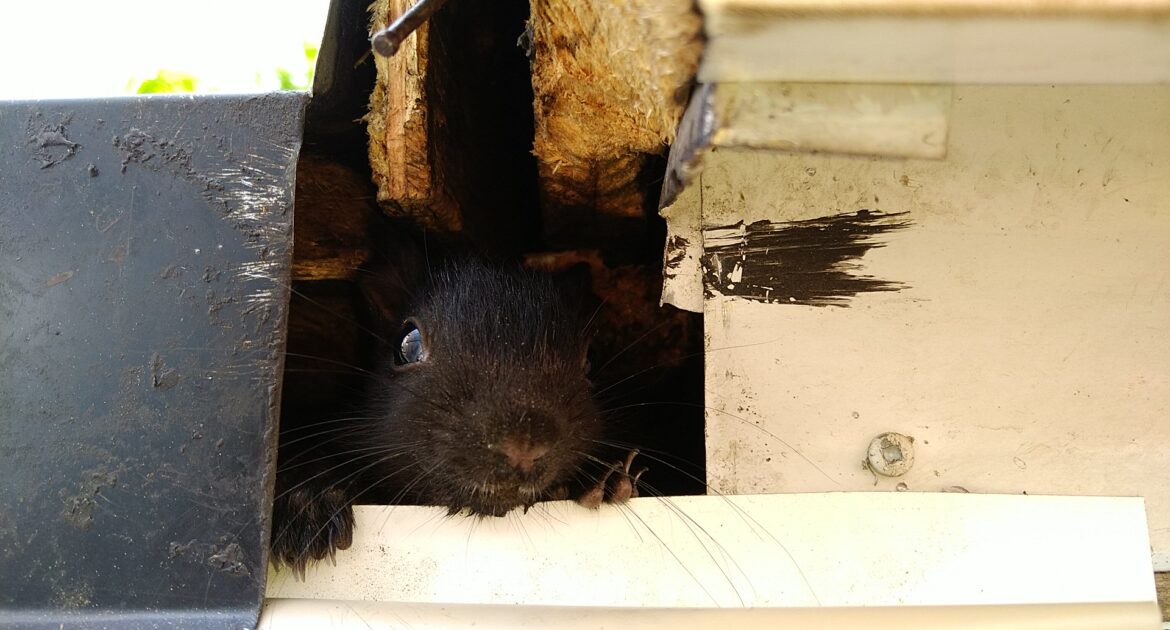Squirrels are entertaining neighborhood mascots, but they do not belong in your house. Learning how to get rid of squirrels once they are in your home is a lot more complicated than preventing them from getting in. You always want to work with an animal control specialist when dealing with squirrel infestations because they can transmit diseases like rabies and Lyme disease to humans.
4 Diseases Squirrels Can Transmit
Squirrels are fun to watch from a distance but never get too close. Many people make the mistake of trying to hand-feed the animals and get bit in the process. If you get bit by a squirrel, go to the emergency room for treatment. Squirrels can carry several transmissible diseases.
1. Lyme Disease
While typically transmitted through tick bites, Lyme disease is a bacterial infection that can cause fatigue, rash, head pain, and fever. If left untreated, the illness can escalate to more significant complications, including joint, heart, and nervous system complications.
2. Leptospirosis
Unlike Lyme disease, squirrels do not transmit leptospirosis through bites. The bacterial infection spreads through infected animal urine. If a person drinks from a contaminated water source or digs or rests in contaminated soil, they may become infected. The bacteria can live in water and soil sources for several months. Symptoms of the illness include fever, chills, muscle pain, head pain, red eyes, vomiting, rash, abdominal pain, and gastric distress.
3. Rabies
Rabies is extremely rare, and it is unlikely that a squirrel will transmit the disease to a human. That said, an infected squirrel can transmit the disease to a human through bites or scratches. The viral disease begins in the central nervous system and progresses to the brain, eventually leading to death.
4. Salmonellosis
Salmonellosis is a bacteria found in squirrel feces. A person that comes into contact with the bacteria may develop an infection that causes illness and gastrointestinal problems, such as diarrhea, abdominal cramping, and vomiting.
4 Tips for Squirrel Prevention
Learning how to keep squirrels away is the best way to avoid illness, trauma, and property damage. While people live to feed and watch squirrels, they must remember the animals are wild and capable of feeding and defending themselves. You can prevent squirrels from becoming too comfortable around your home in four ways.
1. Perform Roof Maintenance
Squirrels are notorious climbers. If they get onto your roof, they will search for a way to enter your attic. Your home represents shelter, and all wild animals want someplace safe to rest their heads.
Perform routine roof maintenance, looking for damaged siding, vents, or holes. If you find any evidence of tampering, do not seal the area or repair it immediately. Contact a wildlife professional to inspect the space for animals.
2. Don’t Feed
Feeding squirrels is a no-go. While providing food and watching the little critters eat and hide is fun, you encourage negative behavior. The animal will depend on your feedings, and if you miss one or decide to stop, it will start going through your trash or trying to get inside your house to access more food. Also, if the squirrel cannot find or access any food, it may struggle to find enough food on its own.
3. Reduce Attractants
Besides food, your yard may offer other attractants, such as materials for dens. To limit the number of squirrels using your yard, keep your grass cut, trim branches overhanging your roof, and keep your gutters and downspouts clear.
4. Hire a Professional
Wildlife removal in Milwaukee can offer many tips and techniques for keeping squirrels out of your yard. They can also help assess your property to repair issues, like damaged vents, or install tools, like one-way exits. To protect yourself from getting bit by a squirrel you should always rely on the help of trained professionals.If you have a squirrel or other wildlife problem, contact Skedaddle Humane Wildlife Control and schedule a property assessment. The service will send a qualified team to help.




